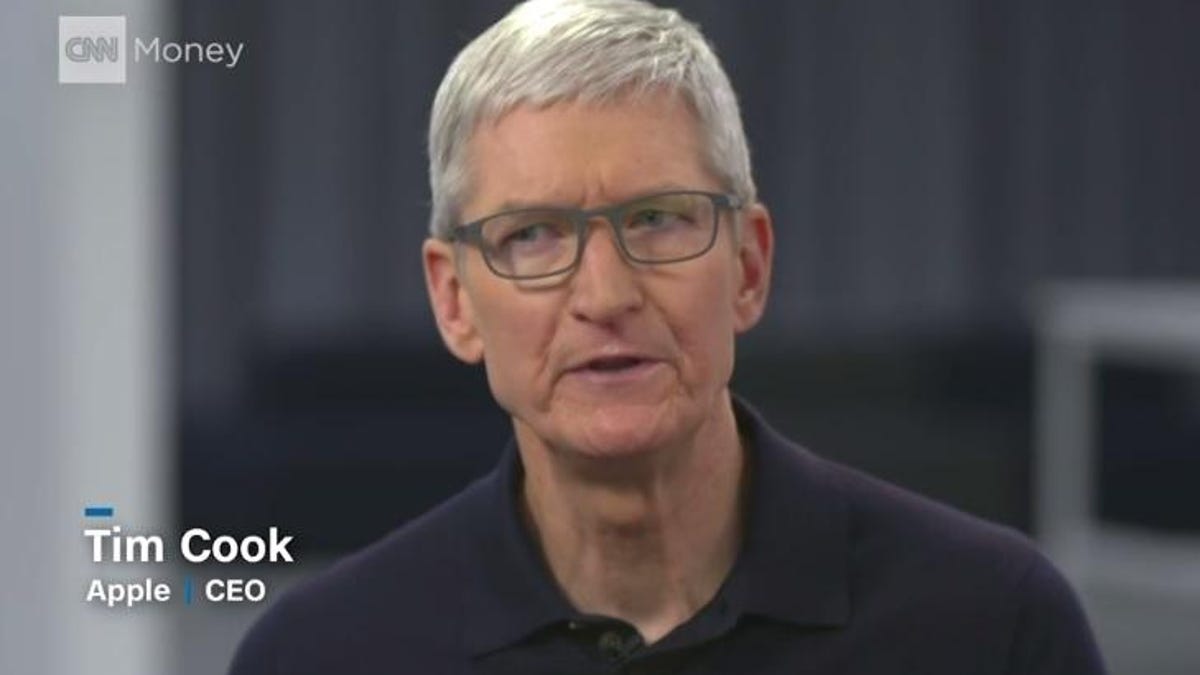Tim Cook on China: Data storage doesn't equal data access
Apple's CEO says the Chinese government won't have access to encrypted data. So stop asking.

Apple CEO Tim Cook says his company's compliance with China's laws doesn't mean the government can access iCloud data.
The Chinese government's requirement that data be stored on servers within the country has sparked ongoing concerns about privacy. Apple CEO Tim Cook is trying to put some of those fears to rest.
"The same encryption that Apple uses in the United States, and in the United Kingdom, and in France and in the UAE, is the same encryption we use in China," Cook said Monday in an interview with NPR.
The location of data storage isn't equivalent to access, Cook said, adding that Apple doesn't record or store any iMessages. Earlier this year to comply with new laws, Apple began storing iCloud data in China -- the world's largest phone market with about 131 million iPhone users. That iCloud data includes messages, emails and photos backed up from Apple devices. The storage relocation prompted privacy advocates to question whether Chinese authorities would have easier access to user data.
"Messages for us are end-to-end encrypted," Cook told NPR. "Apple doesn't know what you're saying, we don't have a record of it, we don't store it. We don't have a key to it, right? The key is with the sender and the receiver."
Apple is often on the front lines of privacy protection and has refused to sell customer data or to give the US government a backdoor key to users' data.
Cook further announced Monday at Apple's Worldwide Developers Conference that the company will add a function on its Safari browser to block third-party trackers on websites, including Facebook. The company will also end so-called fingerprinting, which allows third parties to identify your device through data.
To Cook and Apple, privacy is "one of these key civil liberties that define what it means to be an American," he told CNN.
Apple didn't immediately respond to CNET's request for comment.
Fight the Power: Take a look at who's transforming the way we think about energy.
'Hello, humans': Google's Duplex could make Assistant the most lifelike AI yet.

